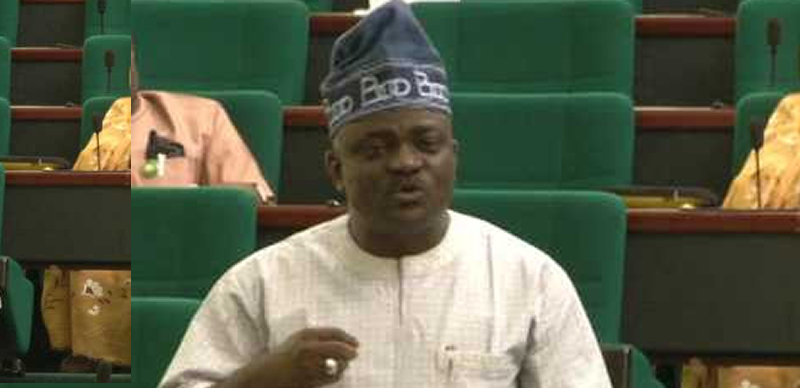
The Chairman of the House of Representatives Committee on Public Accounts, Oluwole Oke, explains to LEKE BAIYEWU how ministries, departments and agencies of the Federal Government waste and divert public resources
Yours is the only committee clearly mentioned by the 1999 Constitution. What are its core objectives and mandates?
The core mandate of the committee as per Section 85 of the constitution is to consider the reports laid by the (office of) the Auditor-General for the Federation and then bring our report to the floor, and then the House will deliberate on the report, approve the same and convey our resolutions to the Executive for implementation. So, essentially, we check what and how our resources have been applied, whether they have been employed or deployed in an efficient manner, and to ensure accountability at all times.
How far has the Executive gone with the implementation of National Assembly’s recommendations, especially audit queries upheld by the parliament?
Our findings and recommendations are embedded in our reports from 2011 to 2018, which we have submitted. We have laid the same on the floor of the House. So, it is now the duty of the House to schedule our reports for consideration in the Committee of the Whole; and thereafter, our resolutions, decisions and conclusions will go into what we call a conference with the committee of the Senate, perhaps if there are differences in our resolutions or decisions. After the conference, the final position will be adopted and conveyed to the Executive for implementation.
Why have Nigerians not seen the consideration and implementation of the reports?
That is what I told you; that at the committee level, we have done our job up to 2017 and part of 2018. The final collation of our reports has been laid before the House. Now, the House, I believe, from next week, will begin consideration of the reports of the Public Accounts Committee of the House as laid before it. And then, whatever decisions we come out with now will be conveyed to the Senate for concurrence. Don’t forget that we also have the PAC at the Senate. The Senate PAC also has its own reports and recommendations that will be tabled before the Senate in the Committee of the Whole. So, if we are on the same page; if there is no difference between our decisions and resolutions, then it means that our conference will be easier. We will just meet and adopt the reports. But where you have variances and differences, then we will go to the conference committee and the finality of the reports will go to each chamber – the Senate and the House. Then, there will be a third reading and we will convey them to the Executive.
In the years under review, what were the discoveries your committee made, especially while grilling ministries, departments and agencies on audit queries issued against them?
The truth is this: we have a lot of wastages…wastages stemming from contract inflation, duplication of projects, abuse of provisions of the Public Procurement Act, 2007 and non-rendition of accounts. Those are the issues. Corruption is not just about naira and kobo; it can be even about conduct. A government official’s conduct may put a government in a serious quagmire. These are the issues we are having. I will give you an example; through the Nigeria Immigration Service, revenue accruable to Nigeria has been mismanaged and has been stolen by the abuse of provisions of the Public Procurement Act and Section 162 of the Constitution of the Federal Republic of Nigeria. All the revenue accruable to Nigeria should hit the Federation Account, but what happens in the case of the Immigration Service in terms of revenue rendered in the areas of passport issuance, visa issuance and other administrative engagements – where citizens abroad made payments online, find out what has happened to those revenues.
Only 25 per cent hits the Federation Account. The rest is taken from source by invaders and night marauders. I can continue to mention many windows through which Nigeria is losing revenue. They include the abuse of free zones by the free zone authority. Something that should be of service to us has turned out to be hurting us. When you look at the implementation of NEPZA (Nigeria Export Processing Zones Authority) Act and the Oil and Gas Free Zones Authority Act, go and check them and see how Nigeria is bleeding. The Nigeria Investment Promotion Commission, go and see how we are losing through the abuse of those schemes. Even Customs duty waivers, check it and you will see that Nigeria is bleeding seriously. You will see somebody importing goods that we can manufacture in Nigeria and you are giving such a person a duty waiver. In other words, you are killing the local industry and exporting employment to another country.
The President, Major General Muhammadu Buhari (retd.), while laying the 2023 Appropriation Bill before a joint session of the National Assembly, said revenue shortfalls remained the greatest threat to Nigeria’s fiscal viability. Do you agree with him?
The truth is that, yes, Mr President is correct. The Finance minister is correct that we have a revenue gap in the country and we are losing revenue. Look at how some people are stealing our crude oil. But the little we have been able to garner is being abused on a daily basis. That is the truth of the matter.
Where are the anti-corruption agencies in this case?
The anti-corruption agencies are doing their best. On a daily basis, I read about convictions secured by the Economic and Financial Crimes Commission on Twitter. They are doing their best but you have to understand that fair hearing is a very sensitive instrument and citizens must exhaust that mechanism, and that involves going to the highest court of the land – the Supreme Court. Until you get finality on some of the cases before the EFCC, you may actually not be able to appreciate what they are doing. But I tell you, they are doing a lot.
How much is your committee seeking to save for the government and Nigeria should the recommendations in your reports be passed and implemented?
Let me tell you; if the government considers the reports of the Public Accounts Committee and supports the Office of the Auditor-General (of the Federation) to do its work thoroughly, honestly, the savings that we are likely to get will underwrite our total exposure in terms of liabilities.
Is it that huge?
It is huge…very huge. There are lots of wastages in the system.
Who should be held responsible?
The Executive; the chief accounting officers should be held accountable. The law is very clear. Section 20 of the Public Procurement Act states clearly who should be held accountable. It is the chief accounting officer. But because people don’t actually follow the Procurement Act to the letter, people get away with it.
There were instances where you ruled at investigative hearings that capital release to certain MDAs should be suspended until they account for previous allocations. Why can’t the government toe this path by releasing funds to only those that have rendered their accounts?
I agree with you that we can go through that window. Let me give an example; the Accountant-General for the Federation issued a circular in 2016 that in compliance with the IPAS (Independent Public Accountants) parameters, each MDA should submit standalone financial statements. Go and find out how many MDAs have complied with that circular. The Auditor-General (of the Federation) escalated it in the 2019 report and you will be shocked that 950 MDAs refused to comply with that instruction, including foreign missions. So, I still put the blame on the parliament. The various standing committees of the House should be up and doing. They should thoroughly oversight the MDAs. Don’t forget that (the Committee on) Public Accounts works post-mortem, but the various standing committees of the House should be up and doing on a real-time basis. If I give you money; if I appropriate funds to you, I should monitor what you are doing with the money and not wait until the harm has been done before the committee and the auditor-general come in. We have to deter our people from wrongdoing.
Are there recommendations for the prosecution of errant MDAs and government officials in your reports?
Of course! The Executive appoints the auditor-general, and the same auditor-general goes back to audit the Executive. You (AuGF) bring your report to the parliament and you are sending your report on findings to the same Executive. You cannot be the judge in your own case. That is why we are advocating that we should trigger the Public Accounts Tribunal to consider the reports of the Public Accounts Committees of the parliament and adjudicate on the same, something akin to the Code of Conduct Bureau and the Code of Conduct Tribunal. It is in the constitution. We need to trigger it and people will begin to be afraid of doing wrong things.
The Office of the Auditor-General for the Federation is said to be underfunded and consequently inefficient. Are you suspecting sabotage by the system?
I will agree with you that it is a deliberate act because the auditor-general does not have enough personnel; it is under the Executive’s control. The Head of Civil Service (of the Federation) approves his manpower (personnel) requirements; the Budget Office (of the Federation) approves the money; the Accountant-General (of the Federation) releases the money; the same people (whose accounts are) to be audited. So, why do you think they will empower the office to do its work? That is why Mr President should assent to the Audit Bill and give the Office of the Auditor-General (of the Federation) the status that it deserves in the constitution, where nobody will have any control over the office.
President Buhari in his budget presentation said some committees of the National Assembly had been unilaterally considering and approving budgets for some MDAs without his knowledge and approval. Have you seen audit queries to that effect?
Mr President is correct and you have monitored our hearings where we have summoned chairmen of committees of the House. I can tell you some committees where the chairmen of the committees in the Senate and the House will just sit down and usurp the powers of Mr President and approve budgets of the MDAs (they oversee), which is wrong. The crafters of the Nigerian Constitution, under sections 80 and 81, state clearly who should bring budget estimates (to the National Assembly). It is Mr President. And Mr President, when coming (to the National Assembly to lay Appropriation Bill), ought to come with all the budgets of the MDAs or parastatals under him. Once he lays the budget, then we have rules and procedures on how a bill becomes a law. It has to be read for the first time, second time and third time.
With a deficit of N10.78tn and new borrowings totalling N8.80tn in the proposed 2023 budget, between expanding the tax net and increasing the revenue drive, and plugging leakages and checking wastage, which do you consider more expedient?
We have to plug all the leakages. When we plug all the leakages, we will see the revenue. The exchange rates and everything will drop. Then you begin to deal with people who have mismanaged our revenue.





